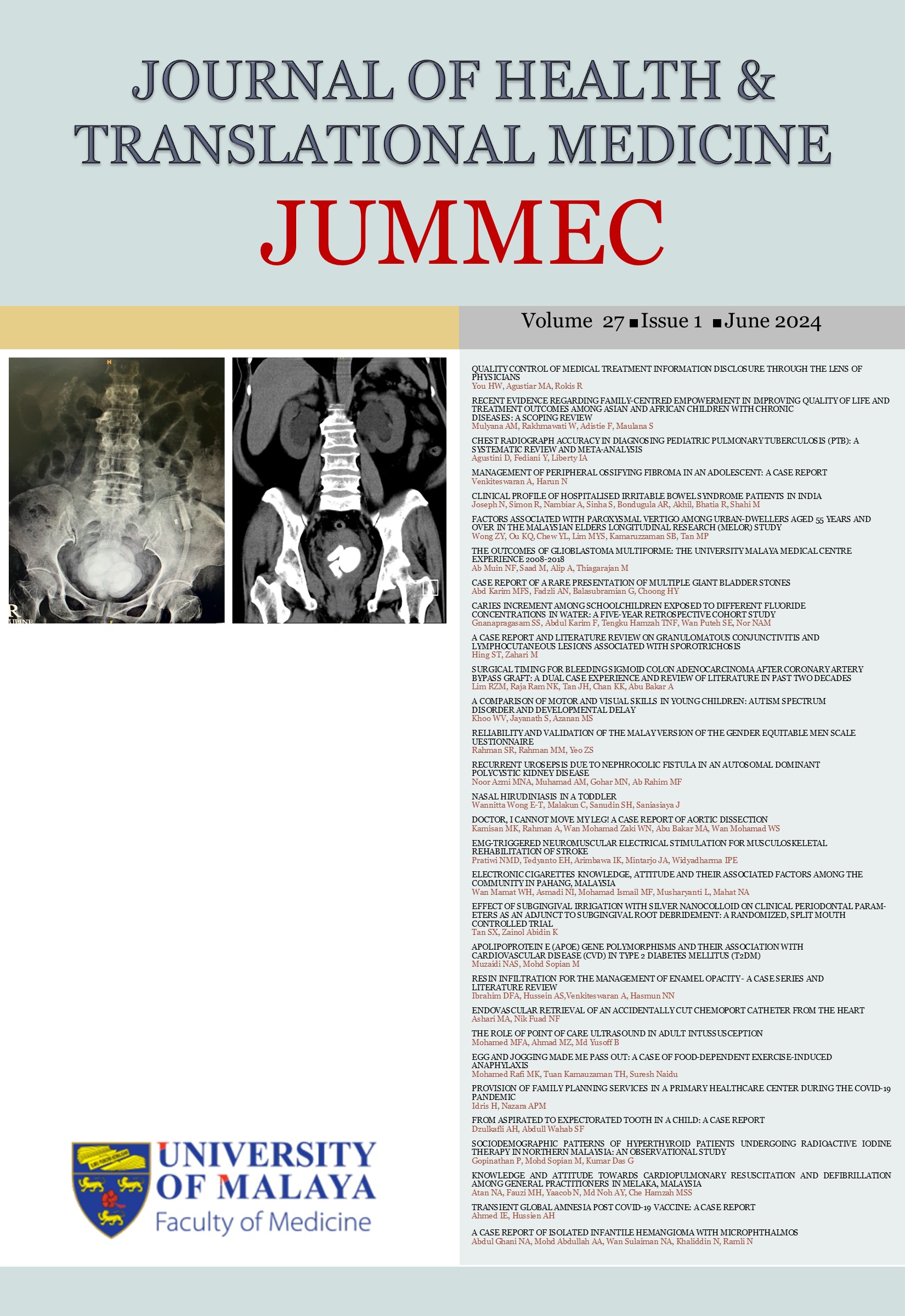RECENT EVIDENCE REGARDING FAMILY-CENTRED EMPOWERMENT IN IMPROVING QUALITY OF LIFE AND TREATMENT OUTCOMES AMONG ASIAN AND AFRICAN CHILDREN WITH CHRONIC DISEASES: A SCOPING REVIEW
Received 2023-04-03; Accepted 2023-06-07; Published 2024-01-02
DOI:
https://doi.org/10.22452/jummec.vol27no1.2Keywords:
Children, Chronic disease, Family, Family-centered empowerment, Quality of lifeAbstract
Chronic diseases directly impact children’s physical, psychological, and social health, determining their quality of life (QoL). Family support is essential for children with chronic diseases, and family-centred empowerment (FCE) programs may improve treatment outcomes and QoL. Using a scoping review, this study aimed to investigate the effectiveness of implementing FCE to improve QoL and other treatment outcomes among children with chronic diseases. The study followed the Arksey and O’Malley’s framework (2005) and the Preferred Reporting Items for Systematic Review and Meta-analysis (PRISMA) for Scoping Reviews checklist. Studies were systematically searched on PubMed, CINAHL, ScienceDirect, and DOAJ. The quality of the included studies was assessed using the Joanna
Briggs Institute appraisal checklist for randomized controlled trials and quasi-experimental studies. The scoping review included 20 studies from the 4,380 retrieved in the initial search. The studies reported that FCE effectively improved QoL, and the physical, emotional, social, educational, and clinical outcomes among children aged 2–20 years suffering from chronic haematological, respiratory, renal, neurological, hepatological, and neurobehavioral disorders. Overall, FCE is a potentially effective, sustainable model for improving QoL among children with chronic diseases.
Downloads
Downloads
Published
Issue
Section
License
All authors agree that the article, if editorially accepted for publication, shall be licensed under the Creative Commons Attribution License 4.0 to allow others to freely access, copy and use research provided the author is correctly attributed, unless otherwise stated. All articles are available online without charge or other barriers to access. However, anyone wishing to reproduce large quantities of an article (250+) should inform the publisher. Any opinion expressed in the articles are those of the authors and do not reflect that of the University of Malaya, 50603 Kuala Lumpur, Malaysia.


